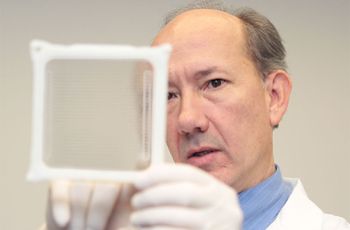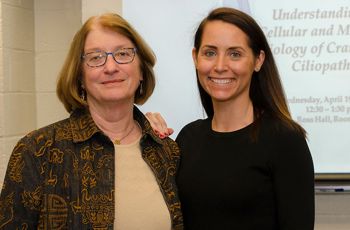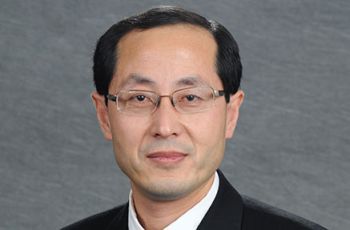Genomics & Experimental Medicine
In a recent study, Tim McCaffrey, PhD, professor of medicine at the George Washington University School of Medicine and Health Sciences, led a team of researchers conducting the largest RNA expression analysis of human coronary artery disease to date.
A paper in npj (Nature Partner Journal) Genomic Medicine by Shawneequa Callier, JD, MA, of SMHS, examined the progress and challenges in increasing the amount of data on individuals with African ancestry in genomic research.
Shawneequa Callier, JD, associate professor of clinical research and leadership, spoke to PBS' NOVA for an article about how the lack of diversity in genetic research hinders the ability of researchers to understand human health and disease.
Rohan Fernandes, PhD, received more than $1.6 million from the National Institutes of Health to investigate nanoimmunotherapies for cancer
Samantha Brugmann, Ph.D. ’05, associate professor in the Department of Surgery and Department of Pediatrics within the Cincinnati Children's Hospital Medical Center, returned to SMHS to present a research seminar on her work, titled “Understanding the Cellular and Molecular Etiology of Craniofacial…
A research team at Children’s National Health System, led by Zhe Han, Ph.D., associate professor in the Center for Cancer & Immunology Research, published a report in Journal of the American Society of Nephrology about a dietary supplement that has demonstrated the ability to reverse…
Timothy McCaffrey, Ph.D., professor of medicine, was mentioned in a Genome Web story for his contribution of data to researchers at Duke University.
Timothy McCaffrey, Ph.D., professor of medicine and director of the Division of Genomic Medicine, was interviewed in The Washington Post for a story on the Supreme Court's unanimous ruling that human genes cannot be patented.
Today, patients with precancerous lesions, or early-stage breast cancer are usually diagnosed after a mammography screening. This method of detection can lead to false-positives and overtreatment, since mammography cannot determine whether pre-cancerous cells will actually turn into breast cancer.…



